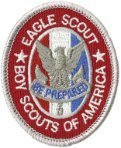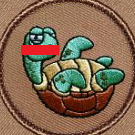Camping & High Adventure
Share a camping tip.
Subforums
-
- 4.7k
- posts
-
- 399
- posts
1907 topics in this forum
-
- 34 replies
- 4.6k views
-
- 17 replies
- 4.6k views
-
- 50 replies
- 4.5k views
-
- 38 replies
- 4.5k views
-
- 17 replies
- 4.5k views
-
- 13 replies
- 4.5k views
-
- 17 replies
- 4.5k views
-
- 48 replies
- 4.5k views
-
- 26 replies
- 4.5k views
-
- 39 replies
- 4.5k views
-
- 40 replies
- 4.4k views
-
- 17 replies
- 4.4k views
-
- 15 replies
- 4.4k views
-
- 46 replies
- 4.4k views
-
- 22 replies
- 4.4k views










